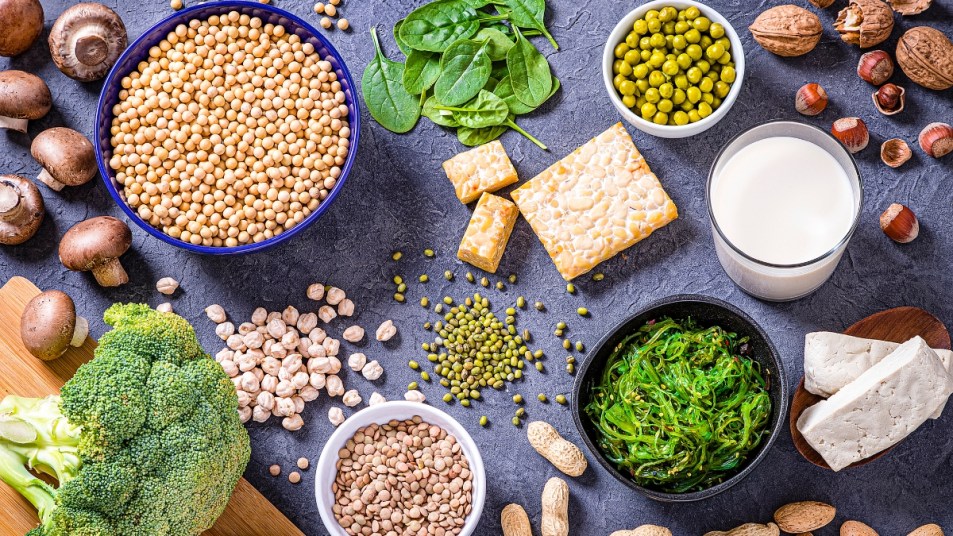This Common Mineral Deficiency Could Increase Your Risk of Heart Disease

Reducing your risk of heart disease has a lot to do with diet. You can do wonders for your cardiovascular health if you eat fresh produce, swap white bread for whole grains, and limit your intake of unhealthy fats. Now, research suggests that you should also pay attention to your iron intake, especially if you are in middle age.
Iron deficiency might seem like a rare occurrence, but the risk increases depending on sex and ethnicity. The American Academy of Family Physicians states that nine to 12 percent of non-Hispanic white women suffer from an iron deficiency. A whopping 20 percent of Black and Mexican-American women experience it as well. It’s therefore important for to think of iron deficiency as a serious issue, especially in the context of cardiovascular health.
A new study published in the ESC Heart Failure Journal found that iron deficiency is linked to a higher risk of heart disease. The investigation included over 12,000 participants in Europe, about 55 percent of whom were women. The researchers assessed the risk factors of each participant, such as high blood pressure, high cholesterol, family history of heart disease, smoking status, and fitness level. For the purposes of the study, the team excluded people who already had coronary heart disease or a stroke.
A Closer Look at the Heart Disease Study
At the beginning of the investigation, researchers categorized the participants as iron deficient or not. To do so, they measured “absolute iron deficiency” and “functional iron deficiency.” Absolute deficiency measures the amount of iron stored in the liver, while functional deficiency measures both the amount of iron stored in the liver and circulating in the body.
In a follow-up that took place 13 years later, the team recorded the number of participants who developed coronary heart disease. They also recorded the frequency of stroke, death caused by cardiovascular disease, and all-cause mortality, or death caused by any condition.
The Link Between Heart Disease and Iron Deficiency
The research team discovered that 60 percent of the participants had absolute iron deficiency, meaning they had low storage levels in their bodies. About 64 percent of the participants had functional iron deficiency, meaning they had low storage levels and low circulation levels.
In addition, 2,212 participants died after 13 years; 573 of those individuals died from cardiovascular disease. Of all the participants, 1,033 individuals suffered from coronary heart disease or a stroke.
Functional iron deficiency was associated with a 24 percent higher risk of coronary heart disease. It was also linked to a 26 percent increased risk of cardiovascular death and a 12 percent increased risk of all-cause mortality. Absolute iron deficiency was linked to a 20 percent higher risk of coronary heart disease. It was not associated with a higher risk of death or stroke.
“This was an observational study and we cannot conclude that iron deficiency causes heart disease,” Dr. Schrage said. “However, evidence is growing that there is a link and these findings provide the basis for further research to confirm the results.”
How to Reduce Your Risk of Iron Deficiency the Right Way
Before you try to boost your iron intake, you should first talk to your doctor. This is especially true if you show signs of a deficiency, including:
- Pale skin.
- Dry or easily-bruised skin.
- Sore tongue.
- Restless leg syndrome.
- Heart palpitations.
- Fast heartbeat.
If you suspect that you have an iron deficiency, your doctor may evaluate your symptoms and order a blood test.
With the prevalence of heart disease on the rise, eating a healthy diet with enough iron is more important than ever. You may be tempted to eat more red meat to get a quick, tasty fix, but this might not be the best solution. Fatty red meat and processed meat have both been linked to an increased risk of heart disease. Also, you may not want to jump on the supplement band wagon. Prolonged usage of iron supplements may increase your risk of heart failure.
Fortunately, there are plenty of healthy ways to boost your iron consumption. Iron-rich, meat-free foods include:
- Legumes, such as lentils, chickpeas and dried or canned beans.
- Tofu and tempeh.
- Wholegrains, especially quinoa, buckwheat and amaranth.
- Leafy green vegetables, such as spinach, kale, Swiss chard, and collard greens.
- Nuts and seeds.
- Dried fruit, especially dried apricots, dates, and prunes.
The National Institutes of Health recommends that women between 19 and 50 years old consume 18 milligrams daily. Those who are 51 years old or older should consume 8 milligrams daily. This means it’s not a bad time to channel your inner Popeye and boost your intake of greens!












